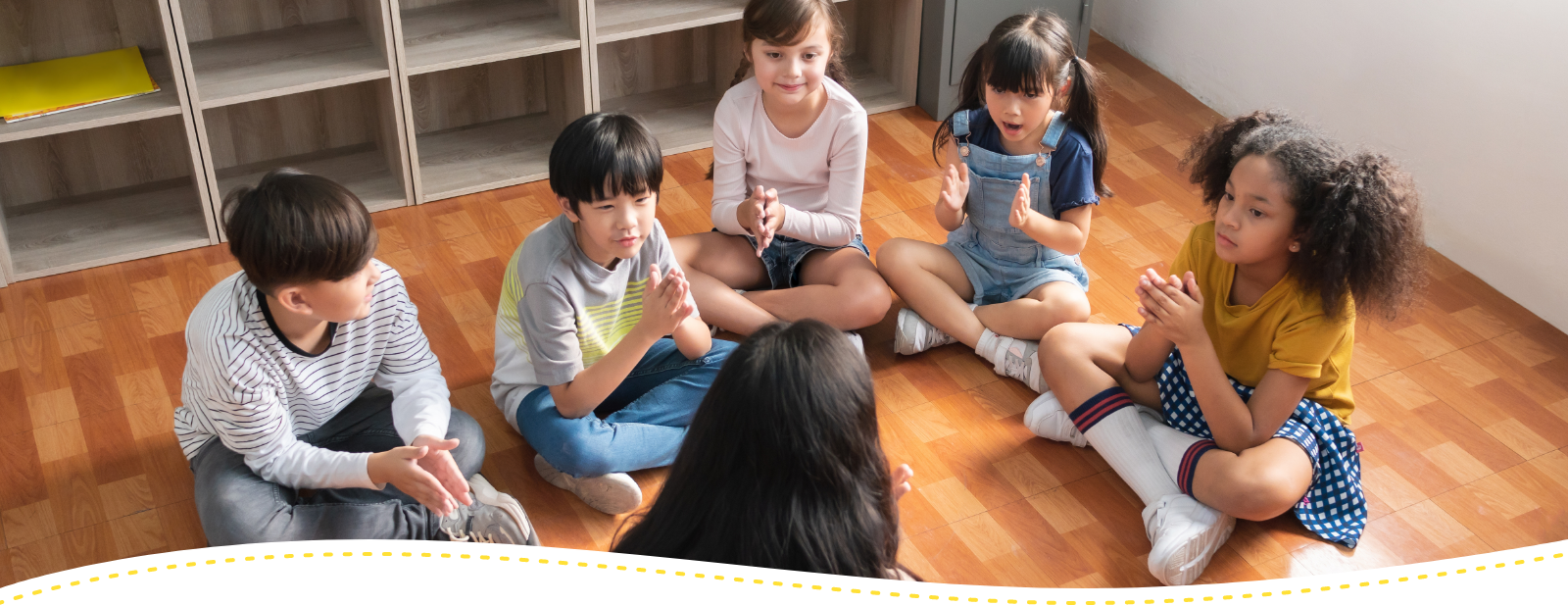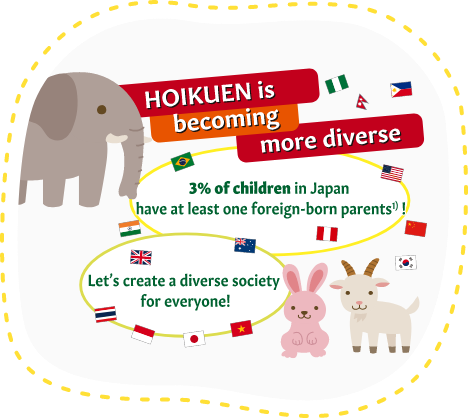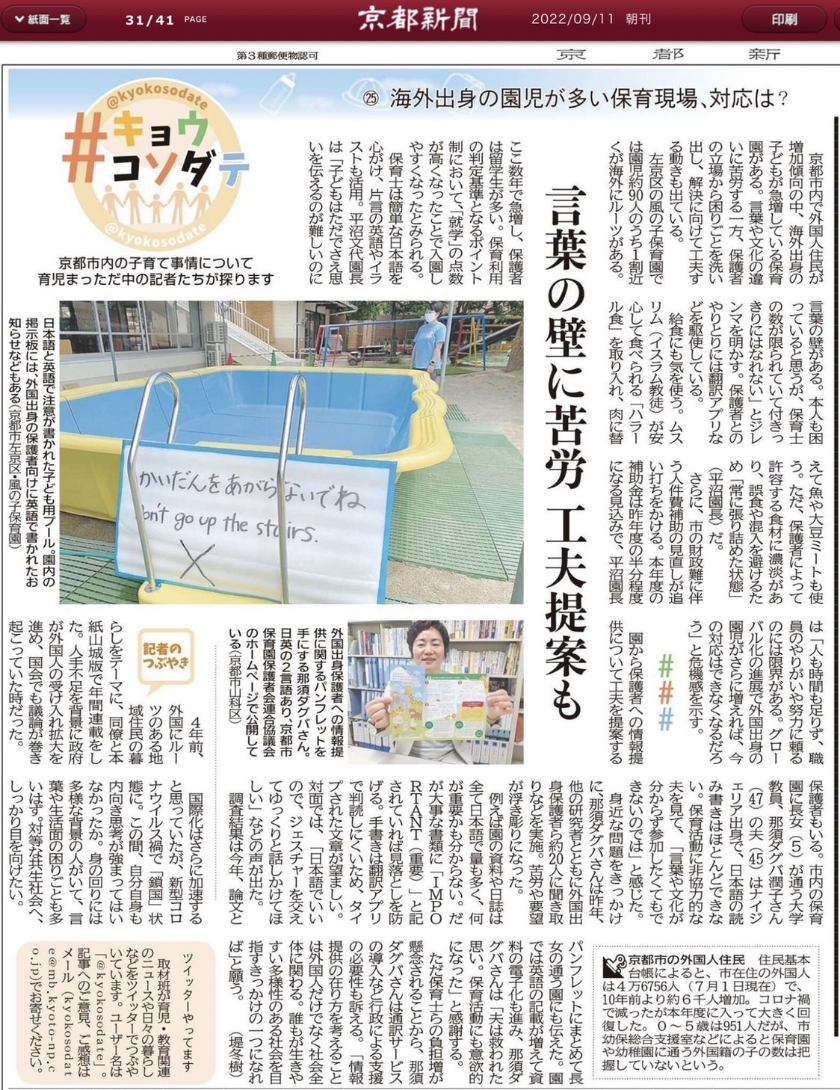Global Child Care


HOIKUEN is becoming more diverse

The child care scene is diversifying.
The percentage of children which either of the parent is a foreigner continues to increase in Japan. Many of these parents leave their children at a childcare facility to go to work.
Our research group focused on the situation these parents are left in and began researching foreign parents as a target group from 2021.
From our research, we have come to understand that parents who do not have sufficient reading and writing skills in Japanese, face many struggles in daycares. Furthermore, we have come to know the difficulty that daycare teachers and other parents are facing in regards to foreign parents.
Let’s understand! Difficulties of parents/ guardians from different backgrounds
The difficulties that foreign parents face is not due to their lack of personal responsibility.
The numbers of foreign residents are rising. People who have at least one foreign parents has reached 3.1 %. To ensure a smooth transition to compulsory education, the Ministry of Justice is encouraging foreign children to enroll in kindergarten or nursery school.
Improving responsiveness towards foreign parents is no longer a challenge for only a small portion of schools.
With so many foreign parents living as members of Japanese society, what should we do now?



3 Proposals to solve the issues
Does this only benefit foreigners? No, it is for the benefit of Japan as well.
Regardless of race, children are a national treasure. The interaction with families that have non-Japanese rules will increase the awareness and ability of the future generation to live with diverse people.
It is said that in the future, many children with foreign roots will become residents and citizens in Japan. Why don’t we think about the future of child care as a society?



The article “Kyoto city’s rapid globalization of HOIKUEN (Childhood Care Center) was published in the newspaper Kyoto Shimbun.
(2022/11/17)

Co-researchers
[Research Advisor]
Nobutaka Ayani,
Department of Psychiatry, Graduate School of Medical Science, Kyoto Prefectural University of Medicine
[Member]
Yoshihiro Matsumoto,
Department of Psychiatry, Graduate School of Medical Science, Kyoto Prefectural University of Medicine
Sara Park,
Lecturer at the Department of Cultures, Faculty of Arts, University of Helsinki
Sachiko Hiratsuka,
Faculty of Education, Otani University
Hiroko Ito (Otsuka),
Department of Nursing, Faculty of Nursing, Kyoto Tachibana University
Noriko Ichikawa,
Faculty of Health and Medical Sciences, Department of Nursing, Kyoto University of Advanced Science
Motoko Abe,
Motoko Abe, Akaimi Hoikuen
 JP
JP